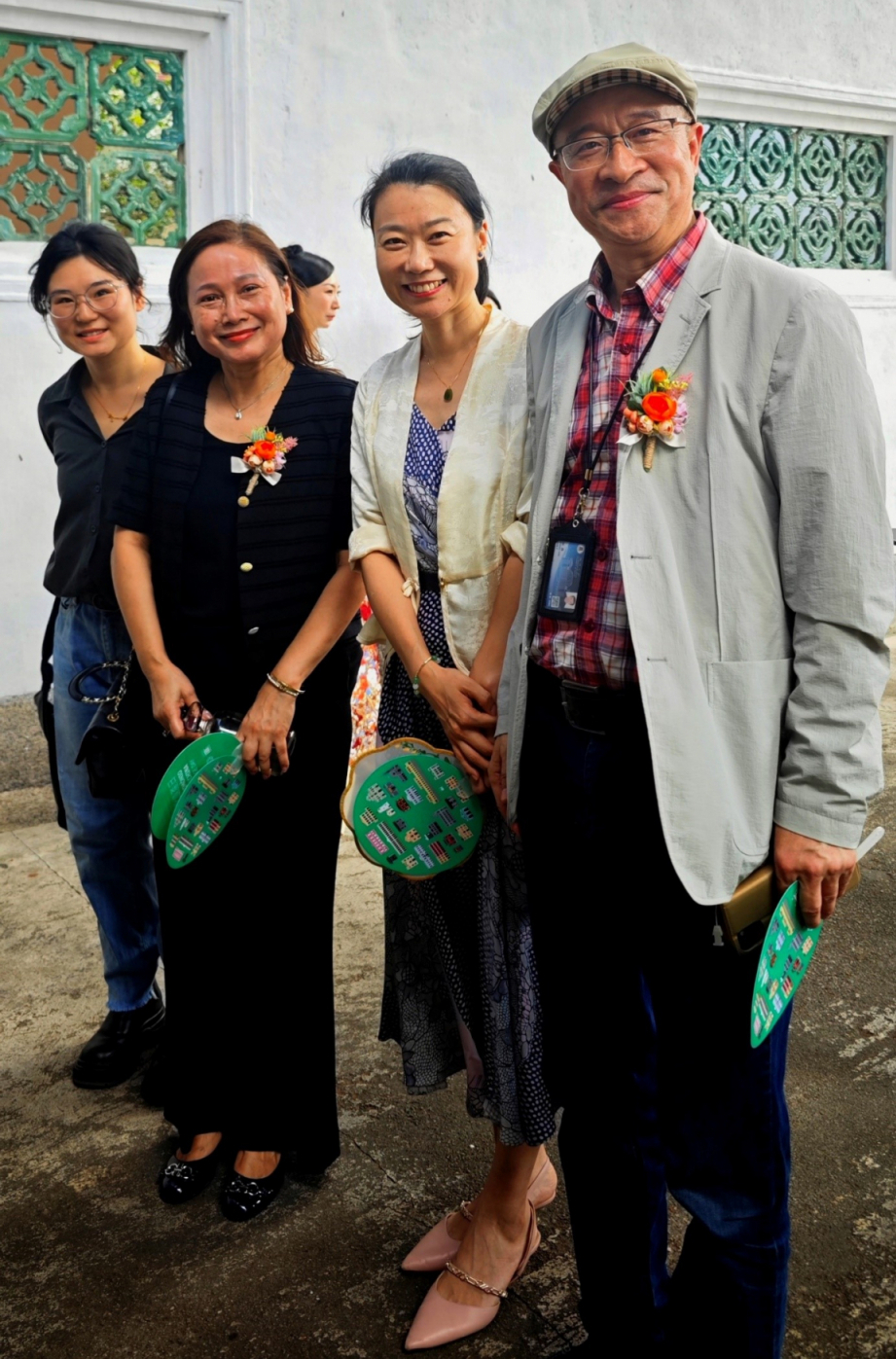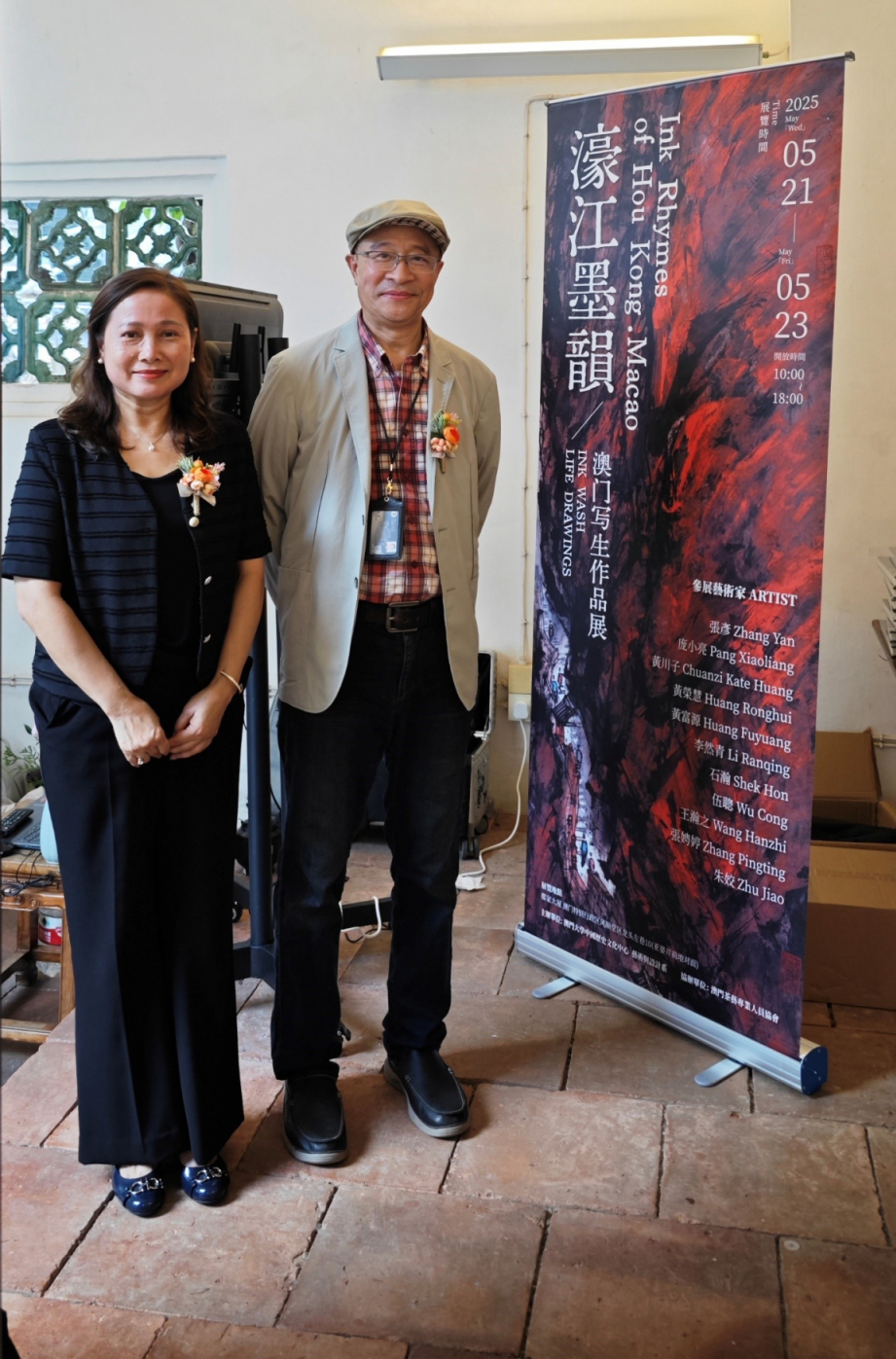3rd ‘Jiangsu-Hong Kong-Macao’ Forum on Classical Literature and Culture “Literary Ability and Classical Texts: The Sinicization and Canonization of Chinese Literature” Successfully Held

From 10-11 May, 2025, the third “Jiangsu-Hong Kong-Macao” Forum on Classical Literature and Culture was successfully held at the University of Macau. This forum was organized by the Centre for Chinese History and Culture and the Department of Chinese Language and Literature at the University of Macau, in collaboration with the Jiangsu Ancient Literature Society, Nanjing University’s School of Literature, and the Department of Chinese and History at City University of Hong Kong. Experts, professors, and young scholars from various universities and academic institutions in Jiangsu, Hong Kong, and Macao gathered to engage in in-depth discussions on classic themes of Chinese ancient literature and culture.
The Jiangsu-Hong Kong-Macao Literary Forum was jointly initiated by scholars from the three regions, consistently adhering to the academic interest of fostering friendships through literature while embracing diversity. It serves as an important academic platform in the field of ancient literature. The first forum in Hong Kong discussed “Literature and Peace: Institutions and Literature in Han and Tang-Song Dynasties,” while the second forum in Nanjing explored “Classics and History in Chinese Ancient Literature.” This year’s forum in Macau focused on “Literary Ability and Classical Texts: The Sanitization and Canonization of Chinese Literature,” with academic collaboration continuing to deepen.
During the opening ceremony, Prof. Zhang Yan, Director of the Centre for History and Culture at the University of Macau, welcomed the attendees on behalf of the hosts. Prof. Zhang Jian, Associate Dean of the Faculty of Humanities at the University of Macau, encouraged young scholars to inherit the humanistic concerns of literary classics and promote the future of Chinese scholarship. Prof. Xu Jie, President of the Jiangsu Ancient Literature Society, recited a poem, hoping that the meeting would create a new academic atmosphere that integrates tradition and innovation, gathers academic wisdom, and continues the legacy of literary traditions.
This forum featured five keynote speeches and two panel discussions, with discussants participating in each session. On the first day, the first keynote address interpreted the multiple aspects of classical texts, with four scholars discussing topics such as character evaluations in the “Analects,” innovative interpretations of Han dynasty calendars, comparisons of variant texts from the Han dynasty, and the influence of Buddhist scripture translations on regulated verse. The second keynote focused on the historical dialogue between literature and socio-cultural contexts, with six scholars exploring the multifaceted effects of literary creation on order construction, classic interpretation, and genre evolution.
In the afternoon, the third keynote address concentrated on the clash between social change and literary theory. Six scholars examined the construction of Ming dynasty poetry history, the “discourse on arts” trend, the interactions between scholars and merchants, and the “celebrity effect” related to lyricists, revealing the deep connections between social mechanisms and literary canonization and theoretical innovation. The fourth keynote address addressed the reconstruction of dimensions in meaning, literature, and history, with four scholars discussing the Neo-Confucian implications in “Peony Pavilion,” the canonization process of anti-Japanese wartime lyric collections, political metaphors in “Dream of the Red Chamber,” and the centennial evolution of traditional novels, presenting new interpretations in a cross-temporal context.
The first day concluded with presentations by doctoral students from the Department of Chinese at the University of Macau. The first group focused on the multidimensional interpretation of historical texts, examining Han dynasty poetic citations, the origins of poetic theory, the rituals of Liu-Song dynasty inspections, and the interplay between literary works and institutional and intellectual histories. The second group highlighted the literary landscape of cross-border flows, discussing literary writings of Ming-Qing immigrants in Guizhou, poetry and prose from overseas travels, cultural memories in operas, and sensory narratives in novels, revealing the rich cultural dimensions and text production mechanisms of literary creation across time and space.
On the second day, the fifth keynote showcased methodological breakthroughs in tradition and innovation. Six scholars discussed topics ranging from the meanings in the “I Ching,” poetics criticism, to the issue of “poetry history,” demonstrating the cross-domain tension between classic interpretation and digital humanities through the evolution of historical narratives, inscription version studies, and large language model experiments in poetics.
After in-depth discussions and intellectual exchanges, the forum concluded successfully. The closing ceremony was hosted by Professor Wang Sihao from the University of Macau, where Professor Xu Jie filled in a lyric lamenting the gathering of talents in Macau, stirring thoughts and preserving elegance, expressing hopes for academic inheritance and a new chapter in the future. Professor Zhang Jian echoed the opening remarks, encouraging young scholars to contemplate universal academic principles and take on the future of Chinese scholarship. We look forward to future “Su-Kong-Macau” forums on ancient literature and culture, working together to create new chapters in classical literary research.















